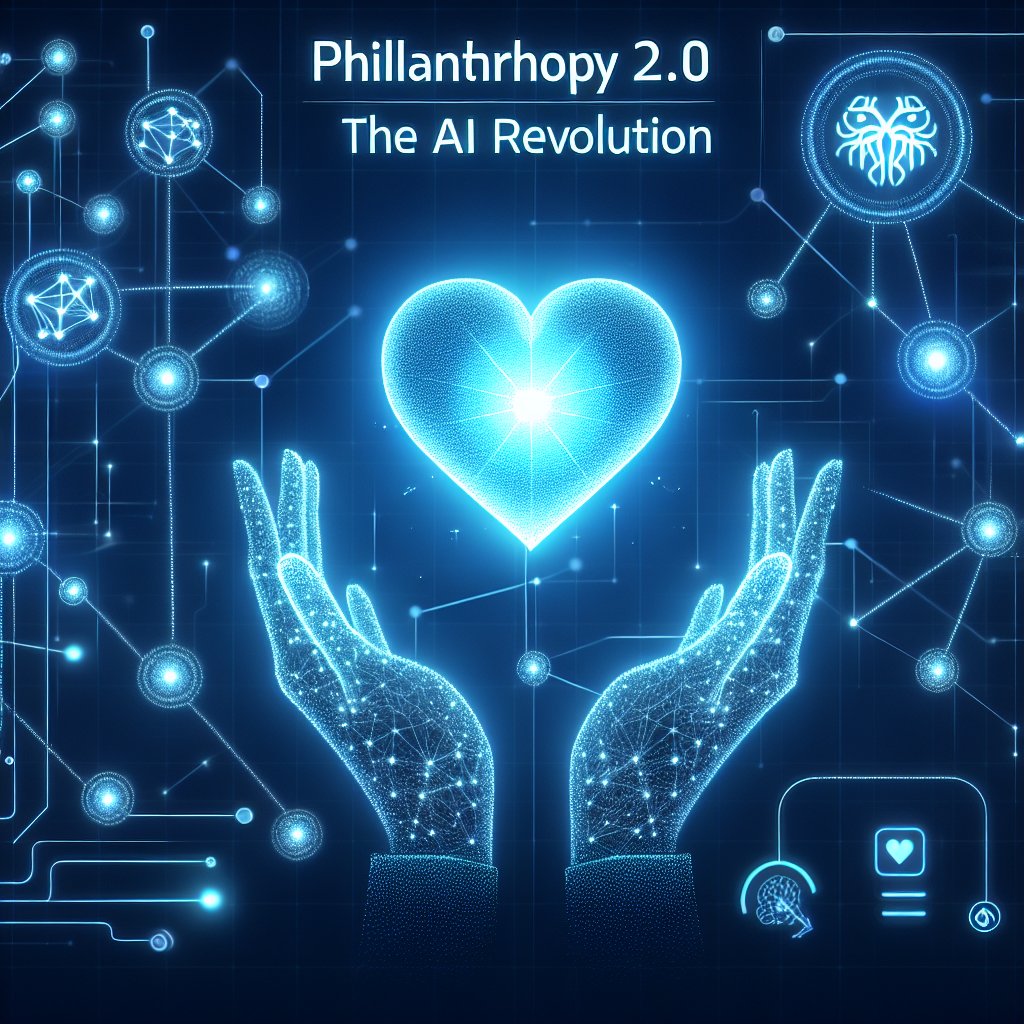Philanthropy 2.0: The AI Revolution
In recent years, the world of philanthropy has been undergoing a transformation with the rise of artificial intelligence (AI) technology. Philanthropy 2.0, as it has been dubbed, is revolutionizing the way charitable organizations operate and the impact they are able to make in the world. AI is being used to streamline operations, enhance fundraising efforts, and improve the overall effectiveness of philanthropic initiatives. In this article, we will explore the ways in which AI is reshaping the world of philanthropy and the potential benefits and challenges it presents.
The Role of AI in Philanthropy
AI technology has the potential to greatly enhance the work of philanthropic organizations in a number of ways. One of the key areas where AI is making an impact is in data analysis. AI algorithms are able to process and analyze vast amounts of data in a fraction of the time it would take a human researcher. This allows organizations to identify trends and patterns that may have previously gone unnoticed, leading to more informed decision-making and more effective strategies.
AI is also being used to streamline operations within philanthropic organizations. Chatbots, for example, can be used to handle basic inquiries from donors and volunteers, freeing up staff to focus on more complex tasks. AI-powered tools can also help organizations manage their finances more efficiently, identify areas where costs can be reduced, and ensure that resources are being allocated effectively.
Another key area where AI is making a difference in philanthropy is in fundraising. AI algorithms can analyze donor data to identify potential high-value donors and tailor fundraising appeals to their specific interests and preferences. This personalized approach can lead to higher donation rates and increased engagement with donors.
Challenges and Ethical Considerations
While the potential benefits of AI in philanthropy are clear, there are also challenges and ethical considerations that must be taken into account. One of the key concerns is the potential for bias in AI algorithms. If algorithms are trained on biased data, they may perpetuate existing inequalities or make decisions that are unfair or discriminatory. It is important for organizations to be aware of these risks and take steps to mitigate them, such as ensuring that training data is diverse and representative.
Another challenge is the potential for job displacement as AI technology becomes more widespread in the philanthropic sector. While AI can automate many routine tasks, it may also lead to job losses for human workers. It is important for organizations to consider the impact of AI on their workforce and to provide training and support for employees who may be affected by these changes.
Finally, there are ethical considerations around the use of AI in philanthropy, particularly when it comes to issues of privacy and consent. Organizations must be transparent about how they are using AI technology and ensure that donors and volunteers are aware of how their data is being collected and used. It is also important to consider the potential for AI to infringe on individuals’ rights or to be used in ways that are harmful or unethical.
FAQs
Q: How is AI being used in fundraising?
A: AI is being used in fundraising to analyze donor data, identify potential high-value donors, and personalize fundraising appeals. This can lead to higher donation rates and increased engagement with donors.
Q: What are some examples of AI tools being used in philanthropy?
A: Some examples of AI tools being used in philanthropy include chatbots for handling inquiries from donors and volunteers, algorithms for data analysis, and tools for managing finances and resources more efficiently.
Q: What are some of the potential benefits of AI in philanthropy?
A: Some potential benefits of AI in philanthropy include more effective decision-making, streamlined operations, personalized fundraising appeals, and increased efficiency in managing resources.
Q: What are some of the ethical considerations around the use of AI in philanthropy?
A: Some ethical considerations around the use of AI in philanthropy include the potential for bias in algorithms, job displacement, and issues of privacy and consent. Organizations must be transparent about how they are using AI technology and ensure that donors and volunteers are aware of how their data is being collected and used.
In conclusion, AI technology has the potential to greatly enhance the work of philanthropic organizations and improve the impact they are able to make in the world. By leveraging AI tools for data analysis, operations management, and fundraising, organizations can operate more efficiently and effectively. However, it is important for organizations to be aware of the challenges and ethical considerations that come with the use of AI in philanthropy and to take steps to mitigate these risks. With careful planning and consideration, AI has the potential to revolutionize the world of philanthropy and drive positive change on a global scale.

